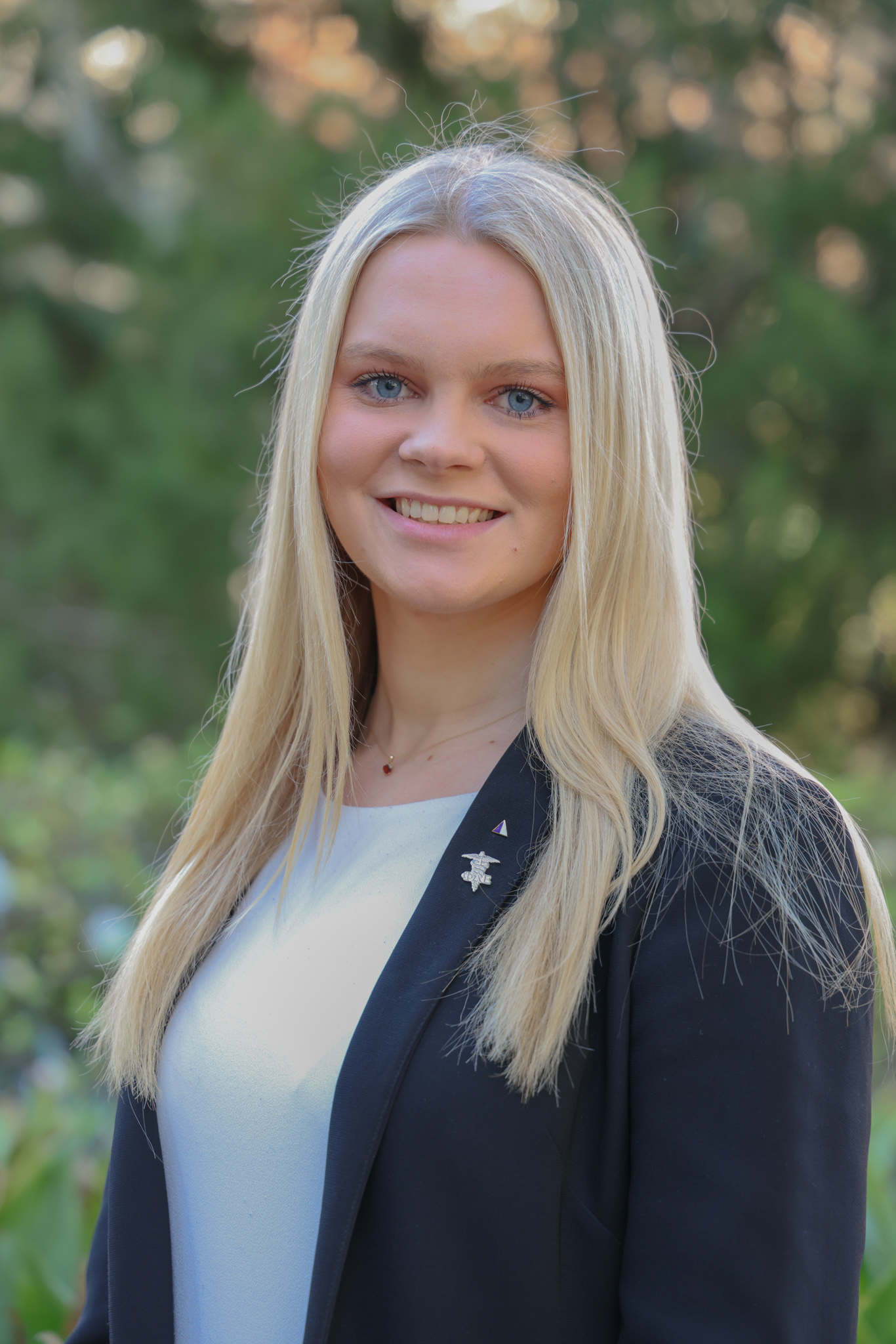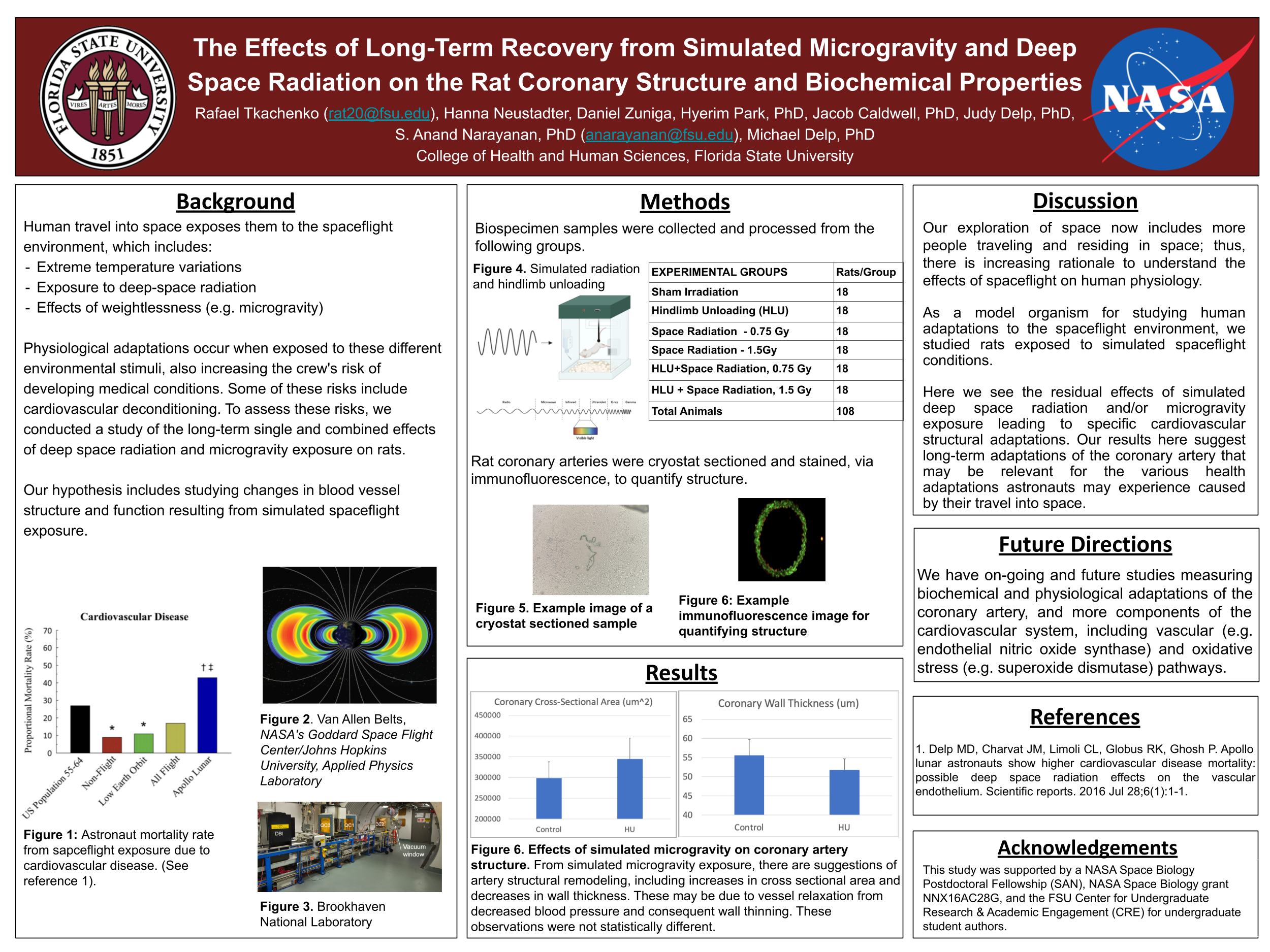Research Symposium
23rd annual Undergraduate Research Symposium, April 6, 2023
Hanna Neustadter Poster Session 1: 11:00 am - 12:00 pm/ Poster #264

BIO
I am a third year undergraduate Honors student from Tallahassee, Florida. I am majoring in Health Management, Policy, and Information with a focus in Health Information Technology. I am currently a research assistant collaborating with Dr. Sunny Narayanan on a NASA-funded study exploring the effects of simulated spaceflight conditions, such as microgravity and radiation, on the cardiovascular system. We are currently doing biochemical analyses of the basilar, coronary, and mesenteric arteries to better understand the observed increased incidences of medical conditions such as cardiovascular disease in some astronauts. I am passionate about pursuing interdisciplinary approaches to medical issues, learning about new topics in the field of space medicine and space life sciences, and understanding how technology can be used to advance healthcare practices.
The Effects of Long-Term Recovery from Simulated Microgravity and Deep Space Radiation on the Rat Coronary Structure and Biochemical Properties
Authors: Hanna Neustadter, Dr. S. Anand NarayananStudent Major: Interdisciplinary Medical Sciences: Health Management, Policy, and Information
Mentor: Dr. S. Anand Narayanan
Mentor's Department: Department of Nutrition and Integrative Physiology Mentor's College: College of Health and Human Sciences Co-Presenters: Rafael Tkachenko
Abstract
Human travel into space exposes them to the spaceflight environment, which includes extreme temperature variations, exposure to deep-space radiation, and the effects of weightlessness (e.g. microgravity). Physiological adaptations occur when exposed to these different environmental stimuli, increasing the crew's risk of developing medical conditions. Some of these risks include cardiovascular adaptations, musculoskeletal deconditioning, and spaceflight-associated neuro-ocular syndrome. To assess these risks and how they may affect the cardiovascular system, we conducted a study of the long-term single and combined effects of deep space radiation and microgravity exposure on rats. Our hypothesis includes studying changes in blood vessel structure and function, as well as biochemical pathway changes (e.g. endothelial nitric oxide synthase [eNOS], oxidative stress) resulting from simulated spaceflight exposure. Rat coronary arteries were collected and processed by cryostat sectioning to assess changes in protein pathways through immunofluorescence. Findings from this study will increase our overall knowledge in the field of space medicine and life sciences, as well as improve life on Earth through advancements made in medicine and health.
Keywords: cardiovascular, medicine, space


